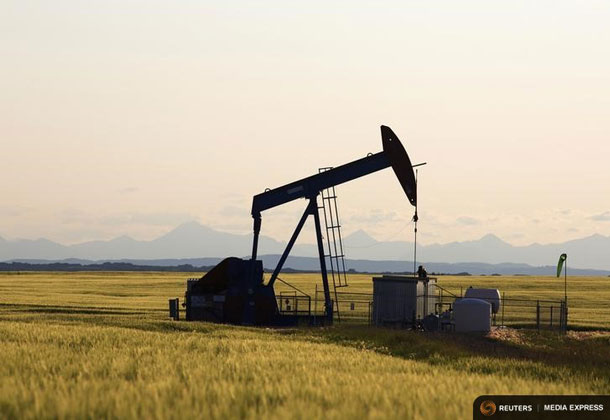
THUNDER BAY – BUSINESS – Oil prices have plummeted by 40% since June and the severity of the decline caught almost everyone by surprise. What suddenly changed about the oil market? How low can oil prices go? And what does it mean for Canada?
For the past four years, oil prices have remained stuck above $85 per barrel, often much higher, and in spite of dramatic increases in global production. The United States saw a transformative boom in shale oil with energy production growing 80% from five million barrels per day (bpd) to just over nine million bpd since 2008. Canada’s oil sands production has added one million bpd since 2005. And there have been increases in many other important suppliers.
These high prices were sustained because, until recently, demand for oil had been rising faster than supply, even though consumption in the U.S., Europe and Japan had been flat or dropping since 2006. In fact, the only countries where we have seen significant increases in oil demand were fast-growing emerging markets, particularly China, which accounted for half the world’s demand growth in 2011 and 2012.
The big shocker in oil markets was the slow-down in emerging markets that caused the International Energy Agency to slash its 2015 demand forecast to a teensy 1.1 million bpd increase. Oil traders were looking at huge production increases in 2015 (an extra 1.2 M bpd from North America alone) that would absolutely swamp the increase in demand.
That’s why the world turned to OPEC expecting to see a production cut that would offset the falling demand. But the cartel did nothing, and the Saudi oil minister said publicly that he wanted to drive down prices in order to force production cuts in shale and oil sands. This won’t work. In fact, production will continue to rise because most of the long-term investments can tolerate significant variation in revenues over the (often) 30-year lifespan of the project. New projects may be delayed, and indeed some big ones have been cancelled, but prices would have to be really low for a very long time in order to reduce production.
What does it mean for the economy? The Bank of Canada warned that falling oil prices could subtract 0.25% from GDP growth. Even the grimmest forecasts have Alberta’s GDP growing at 2.5% next year, down from 4% over the past two years. The province would still be among the leaders in Canada, but without the inflationary pressures of breakneck growth.
Cheaper gas is also a welcome boost for consumers. If prices continue at current levels, a typical U.S. household could save $1,100 and a Canadian family could save $1,300. That’s about $85 billion dropped into the pockets of North American consumers, a welcome stimulus. Globally, lower oil prices could transfer nearly $1 trillion from producers to consumers.
We are likely to have an oversupply in 2015, which will put further downward pressure on prices, so it’s possible that oil could temporarily dip as low as $50 per barrel. Over the longer term, oil prices will depend heavily on a resurgence of demand driven by a healthier global economy. The Canadian Chamber expects it will pick up with the U.S. economy expanding at 3.5% and emerging markets growing 4.8%. This will provide healthy support to oil demand, pushing prices back towards the $70 range. This would put the Canadian dollar somewhere 83-85 cents, providing a nice boost to manufacturing exporters and generating more balanced growth in Canada.
Five Minutes for Business – Provided by the Thunder Bay Chamber of Commerce The Thunder Bay Chamber of Commerce is the Voice of Business in Thunder Bay.







